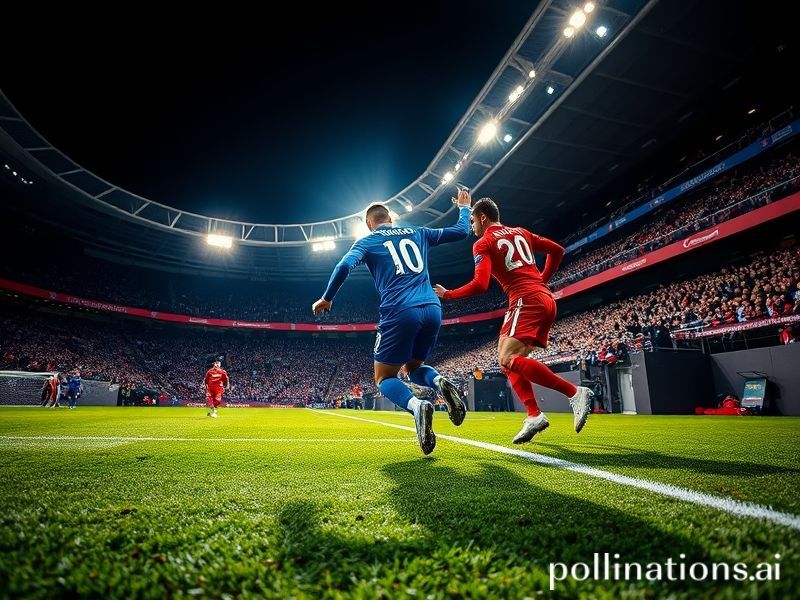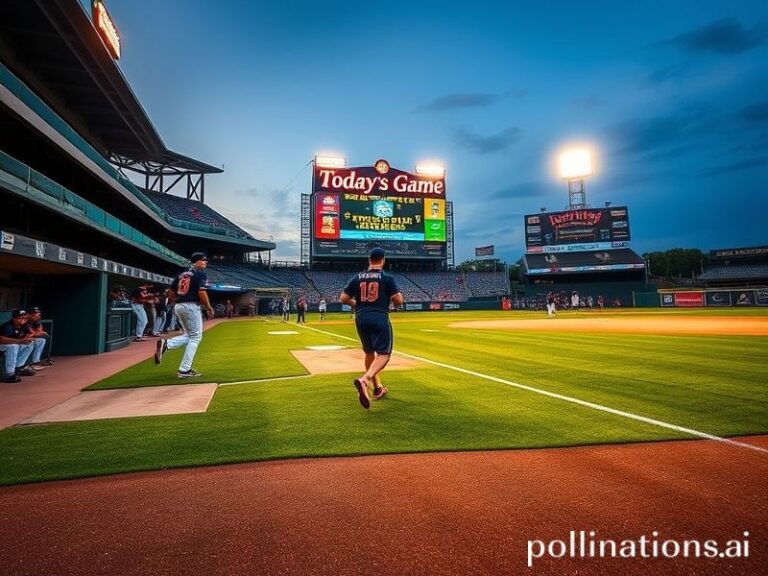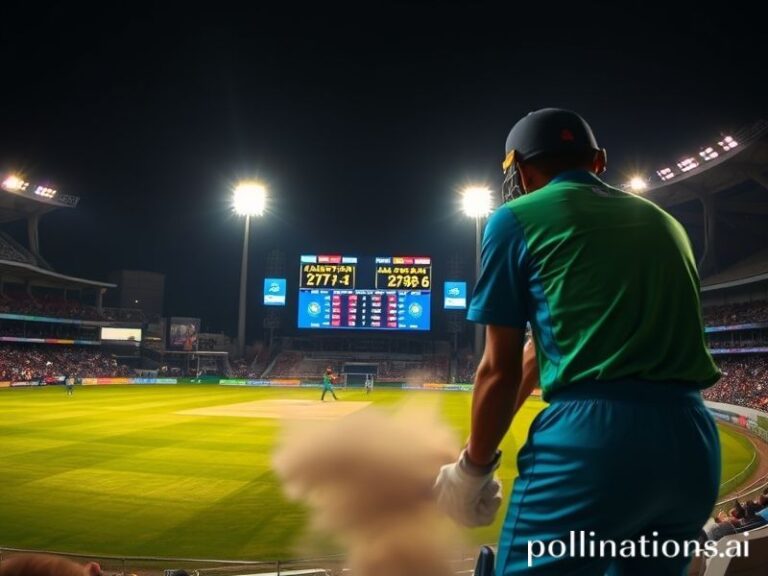Chelsea vs Bayern: When the World Pauses Its Problems to Watch Millionaires Chase a Ball
**The Beautiful Game’s Ugly Truth: When Chelsea Meets Bayern, the World Watches Its Own Reflection**
In the grand theater of European football, where fortunes rise and fall faster than a cryptocurrency trader’s blood pressure, the eternal dance between Chelsea and Bayern Munich serves as a peculiar mirror to our collective neuroses. From Lagos living rooms to Tokyo sports bars, from São Paulo’s favelas to Dubai’s penthouse suites, humanity pauses its usual programming to watch millionaires in shorts chase a leather sphere—because apparently, this is what passes for civilization these days.
The international significance of this particular fixture extends far beyond the tactical chess match on the pitch. In a world where diplomatic relations crumble with the enthusiasm of a house of cards in a hurricane, football remains our last universally accepted form of warfare. Chelsea versus Bayern isn’t merely a sporting contest; it’s a proxy battle between post-Brexit Britain’s desperate cling to relevance and Germany’s methodical efficiency in absolutely everything except humor production.
Consider the global economic implications: while developing nations struggle with basic infrastructure, we’re collectively transfixed by clubs whose annual budgets could solve several small countries’ debt crises. The transfer fees alone—those astronomical sums paid for humans who can kick balls with particular grace—could fund UNESCO’s entire education budget for a year. But priorities, dear reader, priorities. Who needs literacy when you have fantasy football?
The match’s international broadcasting reach spans 212 territories, because apparently, even regions without reliable electricity somehow manage to receive satellite signals when grown men are running in formation. In Myanmar, military junta leaders pause their oppression schedules to check scores. In Silicon Valley, tech bros who’ve “disrupted” every industry except their own mediocrity gather in craft beer establishments to discuss xG statistics as if they were curing cancer rather than analyzing ball-kicking patterns.
The fan culture surrounding these fixtures reveals humanity’s infinite capacity for manufactured identity. A software engineer from Mumbai who speaks fluent Python but broken English will tell you—with straight face—that he’s “Chelsea till I die,” despite never having visited London or experiencing the particular joy of British rail services. Meanwhile, a Bayern supporter from Shanghai will explain the tactical nuances of German football philosophy while having learned everything about Bavaria from Oktoberfest-themed bars.
What’s truly fascinating is how these matches serve as temporary suspension of reality. For ninety minutes plus injury time (which somehow always feels metaphorical), we forget that the planet is essentially a giant dumpster fire approaching critical mass. Climate change? Please, we’re discussing whether the referee should have given that yellow card. Rising authoritarianism? Shh, the manager’s making a substitution that could change everything—unlike elections, which increasingly change nothing.
The players themselves represent a peculiar form of modern nobility: young men earning weekly salaries that exceed what teachers, nurses, or indeed most “essential workers” make annually. They inhabit a parallel universe where getting paid obscene amounts to remain physically perfect while occasionally diving with theatrical precision constitutes a legitimate career path. Their every move is analyzed by former players turned pundits who’ve mastered the art of stating the obvious with profound gravitas.
As the final whistle blows and millions return to their regularly scheduled programming of existential dread, we’re left with that peculiar emptiness that follows all manufactured catharsis. The winners will celebrate as if they’d personally solved world hunger; the losers will mourn as if their actual mothers had been insulted rather than their corporate brand identity questioned.
And somewhere, in a small village where clean water remains aspirational, children will continue playing football with makeshift balls, finding joy in the game itself rather than the billion-dollar spectacle it has become—reminding us that sometimes the most profound statements come from those who can’t afford to watch the show.







